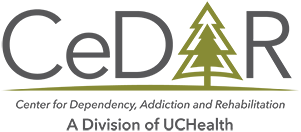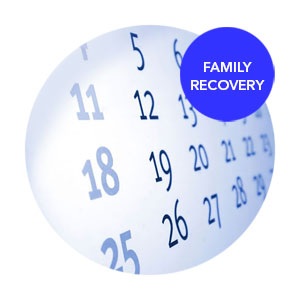FAMILY RECOVERY
As an addict or alcoholic starts to enter recovery, they will always remember “Day 1.” This is that person’s sobriety date and has huge significance for that person. It is the benchmark by which they may receive praise (or coins) from a 12-step program. It is an anniversary for beginning a new, healthy life. Even though your loved one has experienced “Day 1,” it is common that your Day 1 may be in a few months. This article will describe how to understand the difference, as we focus on the long road to rebuilding trust.
Trust
One of the most common frustrations amongst families affected by addiction is the breakdown of trust. Lies about drinking, dropped responsibilities, or outright abuse can shatter trust in a relationship. Once that trust is broken, it can take years to fully repair – if it can be repaired at all. Just ask someone who understands any business that relies on customer service. Your business may provide excellent service to a customer on the first 19 visits, but if you provide poor service on a visit 20, you’ll likely lose that customer. This demonstrates the fragility of trust and how difficult it is to repair.
What’s one thing that won’t likely rebuild trust? Words! Paying lip service to trust restoration doesn’t seem to work all that well. If you’ve been lied to by the person hiding her drinking, how would today’s words be any different? The only things that can fully restore trust are:
Healthy Actions
and
Time
It also is very common for someone with an addiction to struggle with relapses. This can get very discouraging. You are hopeful of improvement. It may sound like this time their efforts will really work. You want to believe your family member, but you know their track record. Repeated attempts at sobriety, relapses, and perceived failures can make family members jaded, detached, or deeply wounded. This leads us to the next part of the dilemma – trauma for the family.
Family Trauma from Addiction
Trauma responses all involve a few core ingredients. There needs to be a wound. This could include harm inflicted on another through physical, sexual, or emotional abuse. Another example of a wound is more vicarious – witnessing a loved one decline and suffer. The second core ingredient involves a significant emotional response by you, the non-addicted family member. This emotional response can go in one of two common ways – increased emotions (reactivity) or decreased emotions (detachment).
When we talk about trauma in addiction, especially that of post-traumatic stress disorder, we note that people move to Fight or Flight positions. This seems to be true with families as well. If an addicted family member wounds you in a concrete or abstract way, you could find yourself constantly in fight or flight.
Does your loved one need rehab?
Fight examples include arguments or conflicts, becoming too close or protective of the person, or struggling with an emotional rollercoaster and your own anxiety. Flight examples include dissociating from stressors, detaching and disengaging from your family, or giving up any hope of recovery and health. By identifying any of these in yourself, you may acknowledge that you’ve traumatized by the whole situation. This is exceedingly common in family systems. Fortunately, there are ways to heal.
Delayed Family Recovery
Now that we have established how fractured trust and trauma are at play, it makes sense that Day 1 may be in a few months for you. You may not trust that treatment efforts or progress are legitimate or secure. You may be protecting yourself emotionally from further pain and discouragement. This is often the case with an addicted family member who has relapsed numerous times.
Once again, the only thing that can possibly improve this situation is time and hard work by the recovering family member. If that person were able to maintain recovery for multiple months, you could experience Day 1 at some point.
It is so important to identify this pattern within a family, to help alleviate some of the anxiety and complex emotions of the family support as well as to help prevent the addicted member from feeling slighted or discouraged by the lack of trust. If a married couple experiences this situation with the husband getting sober and the wife being ‘skeptical,’ it can set the husband up to feel upset that his efforts aren’t applauded more and ironically trigger a return to drinking.
“If you still don’t trust me after I sobered up, I might as well just go back to what I was doing!”
We can help prevent some of this by identifying the pattern, validating it to families as being exceedingly common, and to hold onto hope that this trust and rebuilding can and will take place with time. It also helps families to be more on guard for relapse during early recovery, which is the most vulnerable window of time.
Ways You Can Help
As this dilemma can create tension in a family, we need to use some skills that seem to help.
- Set specific goals you’d like to see to rebuild trust. By acknowledging that you want to believe in your family member and giving them a framework, that person can feel more empowered to deliver the necessary markers of healing to restore the relationship.
- Pay attention to micro-aggression. This involves passive-aggressive, controlling, or manipulative patterns by the addicted individual to create guilt about your lack of trust. Don’t tolerate this! Draw attention to it and use simple language such as “I don’t like it when you say that.”
- Pay attention to progress. By validating that your family member is moving in a good direction, let them know that. This will build further motivation for recovery and health.
Follow through with your own therapy. One of our core family goals is to encourage a therapeutic commitment to the addicted individual and the family member. This is not family therapy – it’s personal therapy just for you. If you need to process emotions and work on yourself, do it!




